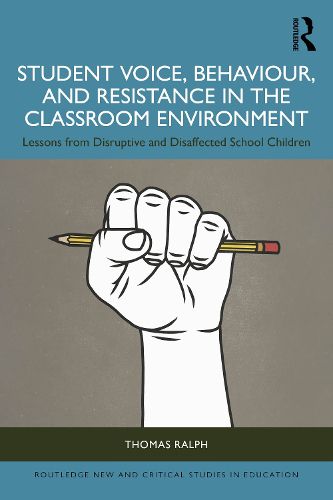Readings Newsletter
Become a Readings Member to make your shopping experience even easier.
Sign in or sign up for free!
You’re not far away from qualifying for FREE standard shipping within Australia
You’ve qualified for FREE standard shipping within Australia
The cart is loading…






This novel volume investigates the motivations behind disruptive pupil behaviour and offers practical guidance through discussion of a novel theoretical framework that explores how students perceive schooling, uncovering what their behaviour can tell us about how to adjust the school environment.
Drawing on cutting-edge research and internationally relevant themes, chapters argue that non-compliant behaviour by students is not mindlessly reactive but is purposeful - a means to make themselves heard. The book explores a dynamic understanding of the processes of placemaking and offers insights on how students create 'student-friendly' places by re-appropriating spaces within schools and why they might behave in certain ways. Arguing that the wider implications of a failure in educational policy is detrimental to student retainment and success, the book will ultimately have ramifications across disciplines and classroom contexts in improving student engagement.
This book will be of interest to researchers, practitioners and policy makers working in the fields of the sociology of education, teaching and teacher education, educational change and reform more broadly. Those looking into behaviour management, youth studies, and education policy will also find this book of interest.
$9.00 standard shipping within Australia
FREE standard shipping within Australia for orders over $100.00
Express & International shipping calculated at checkout
This novel volume investigates the motivations behind disruptive pupil behaviour and offers practical guidance through discussion of a novel theoretical framework that explores how students perceive schooling, uncovering what their behaviour can tell us about how to adjust the school environment.
Drawing on cutting-edge research and internationally relevant themes, chapters argue that non-compliant behaviour by students is not mindlessly reactive but is purposeful - a means to make themselves heard. The book explores a dynamic understanding of the processes of placemaking and offers insights on how students create 'student-friendly' places by re-appropriating spaces within schools and why they might behave in certain ways. Arguing that the wider implications of a failure in educational policy is detrimental to student retainment and success, the book will ultimately have ramifications across disciplines and classroom contexts in improving student engagement.
This book will be of interest to researchers, practitioners and policy makers working in the fields of the sociology of education, teaching and teacher education, educational change and reform more broadly. Those looking into behaviour management, youth studies, and education policy will also find this book of interest.